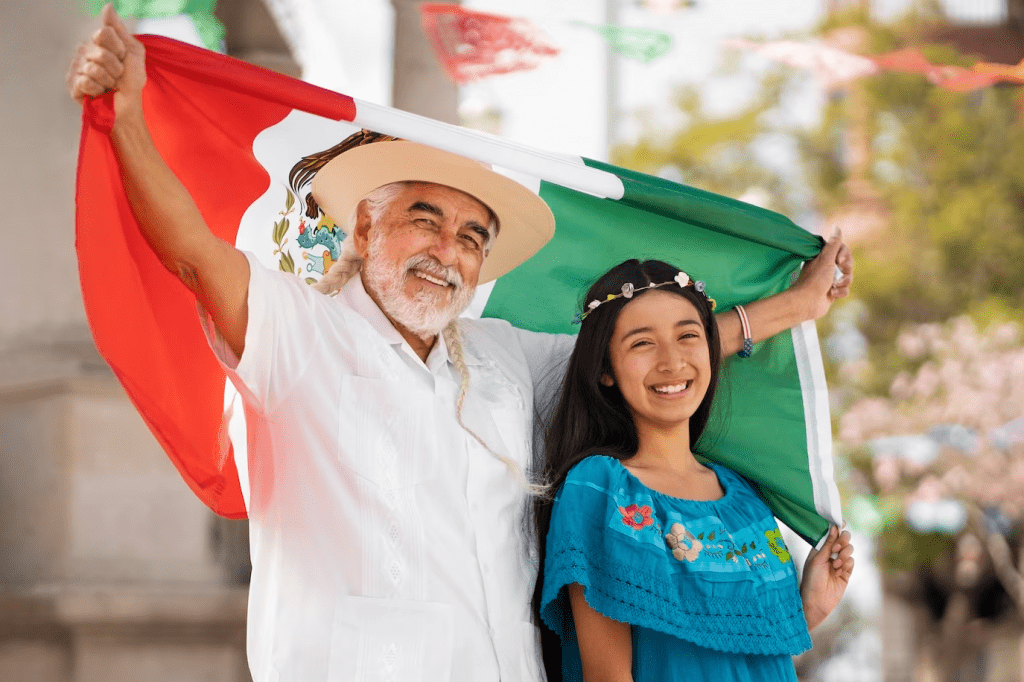I still remember coming home from first grade and finding my mom in a strange, giddy mood.
“Maria!! Guess what! Your dad has been transferred. We’re going to Rome!”
Alarms went off in my head. Seeing my mom so excited made me a little nervous.
“What is Rome?”
“It’s a beautiful place across the ocean, full of history and culture!”
I wasn’t convinced. My six-year-old brain was suspicious of this exuberance, and I realized that my stable life was about to be turned upside down.
“Do you have Scooby Do and the Flintstones?”
“Um. I’m sure you do!”
And that’s how I became a TCK (Third Culture Kid).
What is a TCK? The term was developed by the sociologist, Dr. Ruth H Useem referring to the children of military personnel, diplomats or missionaries initially. A third-culture child is someone who has spent a significant portion of their development years outside of their parents’ culture or the culture of their nationality.
My parents were the first wave of Cuban refugees who thought they would return to Cuba in a few weeks after the Bay of Pigs invasion, but we know how that turned out, so they became inhabitants of Philadelphia, where I was born, and learned how to scrape the ice off the car and drive in the snow and they never returned to Cuba. After several years of working in a global company, my dad was given the opportunity to take a position in Italy.
I fondly remember our stay in Rome. After the initial shock of discovering that Italian programming did not include Scooby Do or the Flintstones or any other fun cartoons on national channels, I was forced to play outside and figure out how to communicate with Claudia, my Italian neighbor. I quickly learned that there were some false cognates in Spanish and Italian. She wanted to play with the “palla”, and when I went to get my sand shovel thinking we were going to dig up some dirt, she made a gesture with her hands and I realized she was referring to a ball. On other occasions, when waiters at restaurants would ask my parents if they wanted some “burro” for bread, (meaning butter), I couldn’t help but laugh imagining a donkey sitting on bread.
After three years we moved to Puerto Rico for almost two years and from there my dad was sent to Mexico City. I loved Mexico. We were there for almost four years where I completed middle school and part of high school. But in the middle of my sophomore year of high school at the American School where I had already made friends and enjoyed some popularity for being part of the “Drill Team,” dancing at halftime at football games, my dad broke the news that we would be repatriating to Philadelphia. After ten years, we were going back “home.”
The problem was that the United States was no longer my home. We had been away from my country of birth for ten years and although we returned occasionally for some vacations, I wasn´t familiar with all with all the particularities of my own culture. I also sometimes felt that teenagers in the United States were treated like undesirable second class citizens, unlike what I enjoyed in Mexico, where we socialized with adults and were respected in conversations, and even offered an occasional drink, among other things.
But life is full of changes, as we TCK’s learn from a very young age. Every change and farewell bring with it a period of mourning, but in the end, curiosity and the realm of new possibilities takes root. There’s always a new opportunity to reinvent ourselves. Who will we be this time? What will be on the other side?
Some characteristics typically attributable to TCK’s are flexibility and adaptability, powers of observation, leadership, open-mindedness, self-confidence, sociability, and communication skills. On the other hand, we may sometimes come across as being a bit detached, indifferent or arrogant, being from “neither here nor there.”
We have a hard time answering the question “Where are you from?” because there is no simple answer without giving all the context, as experience defines our identity. Sometimes we feel like we’re seen as weirdos for having one foot in every culture, for speaking multiple languages, or for not being easily identified.
After ten years in Philadelphia, I ended up marrying a childhood friend from Mexico and we lived there for twenty years, where I raised my children. I returned to the United States just ten years ago, but this time to Florida, because I don’t like scraping ice. I readapted to my country, but I return to Mexico every time I can, since it was the place where I went through important milestones in my life.
People ask me if I feel like I missed the opportunity to develop roots in one place. I say you can’t miss what you don’t know. I became a global nomad and am grateful for the curiosity it fostered in me. I wouldn’t trade being a TCK for anything in the world since after all, the world was part of the deal.



